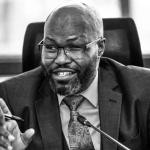Cameroon’s President Paul Biya, aged 92, has announced his candidacy for an eighth term in the October 2025 election. The move, confirmed on his official X account, has reignited debate over leadership succession, health, and the future of democracy in Cameroon.
Biya’s Candidacy Confirmed on X
Cameroonian President Paul Biya, at 92, the world’s oldest serving head of state, has officially announced his intention to run for an eighth term in the country’s October 12, 2025, presidential election.
The statement was made on July 13 through his official X (formerly Twitter) account and included the message: “I am a candidate for the 12 October 2025 presidential election. Rest assured that my determination to serve you is commensurate with the urgency of the challenges we face.”
National and International Reactions: Age and Health in the Spotlight
Biya’s decision has sparked a wave of reactions both within Cameroon and abroad. Many Cameroonians—especially younger voters and civil society groups—have voiced concerns about his advanced age and frequent health-related absences.
International observers and democracy advocates have also questioned the wisdom of another term for a leader who has spent over four decades in power, with critics arguing that his prolonged rule has hindered economic growth and democratic progress.
Government Response to Health Rumors and Absences
The Cameroonian government has a longstanding practice of tightly controlling information about Biya’s health. In recent years, officials have banned media coverage and public discussion of the president’s condition, warning that violators could face legal consequences.
These restrictions have only fueled speculation, particularly during Biya’s extended stays abroad for medical treatment. While government spokespeople insist the president is in good health, his long absences from public view continue to raise questions about transparency and succession planning.
Discontent and Demands for Change
Opposition parties, civil society organizations, and a growing segment of Cameroon’s youth have intensified calls for democratic transition. Many view Biya’s latest bid as a symbol of political stagnation and a missed opportunity for renewal.
The historically fragmented opposition is now attempting to unite behind figures like Maurice Kamto, who campaigns on promises of reform and greater inclusion. Social media has amplified demands for generational change, with many young Cameroonians expressing frustration at the lack of political alternation.
Defections from Biya’s Inner Circle
The political landscape has been further unsettled by the recent defections of two longtime Biya allies: Bello Bouba Maigari and Issa Tchiroma Bakary. Both, once pillars of the ruling coalition, have announced their own presidential bids.
Their departures signal cracks within Biya’s inner circle and reflect broader dissatisfaction among political elites. Analysts suggest these moves could either further fracture the opposition or, if managed strategically, present a more formidable challenge to Biya’s dominance.
Biya’s Legacy: Four Decades of Rule
Paul Biya’s 42-year presidency leaves a complex legacy. Supporters credit him with maintaining national stability in a volatile region, while critics highlight persistent economic challenges, high youth unemployment, and widespread allegations of corruption.
The ongoing Anglophone conflict in Cameroon’s northwest and southwest regions remains unresolved, with violence and displacement continuing to mar his tenure. Biya’s government has also faced accusations of electoral fraud and human rights abuses, particularly in the suppression of dissent and media freedom.
Broader Implications for Cameroon and Africa
Biya’s bid for an eighth term highlights a continent-wide debate over presidential term limits and leadership succession.
His announcement comes as many African nations grapple with similar questions about aging leaders, constitutional changes, and the need for democratic renewal. For Cameroon, the October 2025 election is becoming a key test of its political future—one that will be closely observed by democracy supporters and analysts across Africa.
Leave a comment
Your email address will not be published. Required fields are marked *





